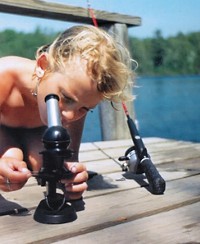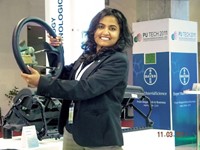Advertisement
Grab your lab coat. Let's get started
Welcome!
Welcome!
Create an account below to get 6 C&EN articles per month, receive newsletters and more - all free.
It seems this is your first time logging in online. Please enter the following information to continue.
As an ACS member you automatically get access to this site. All we need is few more details to create your reading experience.
Not you? Sign in with a different account.
Not you? Sign in with a different account.
ERROR 1
ERROR 1
ERROR 2
ERROR 2
ERROR 2
ERROR 2
ERROR 2
Password and Confirm password must match.
If you have an ACS member number, please enter it here so we can link this account to your membership. (optional)
ERROR 2
ACS values your privacy. By submitting your information, you are gaining access to C&EN and subscribing to our weekly newsletter. We use the information you provide to make your reading experience better, and we will never sell your data to third party members.
Women In Science
Career Ladder
Career Ladder: Anne Mallaband
This English chemist worked in industry before moving to academia and European science policy
by Andrea Widener
June 1, 2019
| A version of this story appeared in
Volume 97, Issue 22
1980

Choosing chemistry early
Growing up in the southwest of England, Anne Mallaband loved playing with a chemistry set with her friends. But it was good teachers who cemented her interest in chemistry. The best teachers “will show you the big picture from the science you’re doing,” Mallaband says. She went on to get a bachelor’s and PhD in organic chemistry from Imperial College London. While there, she spent 9 months studying and doing research at the Swiss Federal Institute of Technology (ETH), Zurich, a technical university where she was first exposed to the chemical industry.
1986
Starting out in industry

Mallaband’s first job was at 3M’s site in the UK, where she switched gears to applied research on polymers. A year later, Mallaband moved to Ciba-Geigy. She started out in research but soon joined a management-training program that showed her all parts of the business, from shift production to marketing. Mallaband later joined the team working to split off from one of the company’s branches as part of a larger, industry-wide restructuring. “It was a multicultural, multinational team that worked to establish a stand-alone business,” she says.
1994
A shot at academia
That experience also made Mallaband think it might be a difficult time to work in the chemical industry, so she started looking for other jobs. She merged her experiences in a new position at the University of Sheffield, where she identified opportunities for academics to work with industry. Working in academia provided some new challenges. “I learned a lot of new skills in terms of negotiation, persuading people to recognize the benefit of collaboration,” she says.
2002

Almost 2 decades in the EU
Those skills served Mallaband well when she got a science policy job in the European Commission. She thought she might stay for just a few years, but she stayed on for almost 20. Through the years, Mallaband worked on specific issues like transportation research policy or public-private partnerships, as well as on big-picture questions like how science and technology can address societal challenges. She was on the team that founded the European Research Council. “The investment in research and innovation is critical for so many policy areas,” she says. In her most recent position, Mallaband worked for the director-general for research on a wide range of issues, including the open-access initiative called Plan S.
2019
Retirement and beyond

Earlier this year, Mallaband took early retirement and returned to England. She is enjoying some downtime while deciding her next steps. She might try consulting—there are plenty of areas where her EU expertise will be useful under Brexit. Looking back, she thinks chemistry was a great foundation for her varied career. “You approach things in a quite multidisciplinary way, which is really quite important in many aspects of work, whether in industry, academia, or a policy institutional role.”
Know a chemist with an interesting career path? Tell C&EN about it at cenm.ag/careerladder.
Check C&ENjobs for the latest job listings, as well as featured videos on what chemists do.




Join the conversation
Contact the reporter
Submit a Letter to the Editor for publication
Engage with us on Twitter